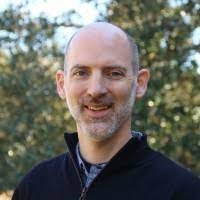Webinar for Professionals: Working with Latino Patients and Their Families
ADHD Weekly, September 1, 2022

Ask the Expert
for Treatment Professionals:
Working with Latino Patients and Their Families
Featuring Luke Smith, MD
Wednesday, Sept. 7 | 12 PM EDT
Cultural norms, along with barriers to healthcare, in Latino communities can affect how ADHD symptoms in children are recognized or acknowledged. While Latino communities have similar numbers of children and adults who have ADHD as the general population, Latino children in the United States are less likely to be diagnosed and receive treatment. Psychiatrist Luke Smith will discuss important cultural considerations for professionals treating Latinos who have ADHD.
Following this webinar, participants will be able to:
- Understand contextual factors to acknowledge when talking with Latino families about medication
- Identify communication styles and word choices that can promote or derail effective communication
- Illustrate culturally appropriate metaphors that promote understanding

David Lucas “Luke” Smith, MD, received his training in child and adult psychiatry in North Carolina and later became a community volunteer. The experience demonstrated to him there is a great need for services in Spanish. Dr. Smith worked with community members to create El Futuro, a one-of-a-kind place where Spanish-speaking immigrants can access culturally-responsive mental health services.
Dr. Smith is the executive director and medical director of El Futuro. He is double board-certified in both adult psychiatry and in child and adolescent psychiatry. In addition to being active with direct services and shaping policy at the local and state level, Dr. Smith leads the organization in research efforts through projects funded by the NIMH and PCORI with a focus on creating evidence-based practices that are especially targeted to help the North Carolina Latino community.
This webinar is provided by CHADD’s National Resource Center on ADHD and is supported by Cooperative Agreement Number NU38DD005376 funded by the Centers for Disease Control and Prevention.

